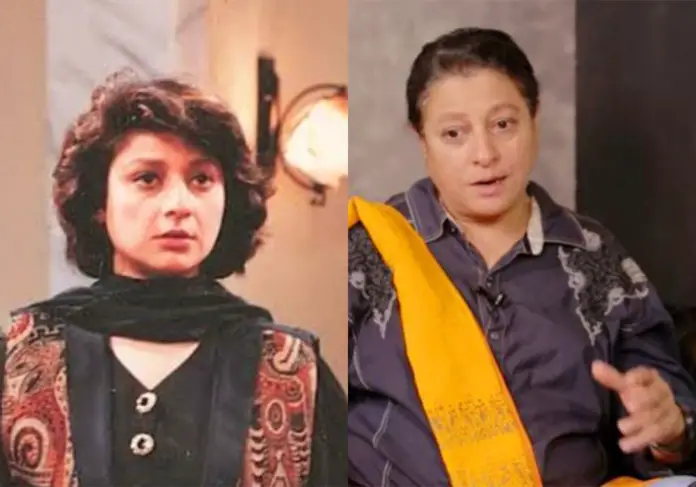Huma Nawab is undoubtedly one of the most powerful actresses of Pakistan. Starting her career in the mid-1980s with Silsila, Nawab continued to work in some of the most important serials of Pakistan’s television drama history such as Nijaat, Aahat, Hawayen, Chaand Grahan and Awazein, almost all of these dealing with one social issue or another back in the times when writers had to deal with numerous restrictions with respect to script-writing. A popular example is that of Haseena Moin’s Aahat, which touched upon the topic of family planning without once using the term itself.
After having given such significant hits, Nawab shifted her focus towards light-hearted dramas, giving her fair share of phenomenal performances in Farar, Tum Hi Tou Ho and Dhoop Mein Sawan. The much-adored actress who was the heartthrob of many owing to her clear dialogue delivery, powerful characters and cute looks left Pakistan in the early 2000s to settle in America, not to return until after more than a decade. Upon returning to Pakistan in 2015 with a few errands in between, Nawab not only made a comeback in the drama industry but on the big screen as well with the Fahad Mustafa starrer, Mah-e-Mir.
It won’t be wrong to say that after her comeback, Nawab disappointed quite a lot of viewers with the kind of content she was appearing in, for Pakistanis were accustomed to watch her in strong roles and issue-based serials, instead of in the cheap family soaps that were being offered to her like every other contemporary actress. Besides, staying away from the screen for more than a decade didn’t do much good for Nawab, for in many of the projects she did after her comeback, her performance was not up-to the mark. In some of the serials, it also seemed that Nawab hasn’t aged as gracefully as some of her other PTV colleagues, resulting in millions missing the beautiful and headstrong Nawab of Nijaat and Hawayen.
However, with the kind of caliber and quality work that was associated with Nawab, the actress didn’t bow for long before unhealthy television content and directors who were younger than her. Taking things in her hands, Nawab gradually started infusing the same charm into her roles, which was once her characteristic, and in serials like Deedan, Yaqeen Ka Safar, Mein Na Janoon, Dil Ruba and Kaif e Baharan, managed to steal much limelight with her strong acting.
Hum Kahan Ke Sache The, of all, is one such serial in which Nawab seems to have brought back all that has always been expected of the high-profile actress; good enunciation, natural facial expressions switching in accordance with dramatic changes, and an on-screen grace.
In this star-studded serial penned by Umera Ahmed that runs on HUM TV on Sundays, Nawab plays the role of Aswad’s mother. Stuck between her sister’s daughter and her brother’s daughter, both of whom are interested in her son, Nawab plays the role of Saleha, a mother who loves her son yet has to take care of her siblings’ emotions, thereby also keeping intact the culture of saving family bondages, no matter how toxic. Furthermore, Saleha is also a khala (aunt) who is perhaps the only sibling concerned for her orphaned niece, Mehreen (Mahira Khan).
Considering the nuances of her character, that of a South Asian woman whose identity depends less on herself and more on the relations attached to her, Nawab plays a strong, yet at times helpless woman whose failure to take the entire family along is reflected in her fidgety movements. Saleha is educated and carries a decent social background as is depicted through her on-point make-up and elegant clothing but has to revert to years’ long cultural practice of keeping all of her family members happy, resulting in a character that strives hard to keep a balance between her education and her culture, portrayed on screen through gestures and expressions exuding nervousness and confusion. All the same, the character doesn’t let itself lose its grace of a woman who doesn’t compromise on her outlook.
In a nutshell, Nawab seems to have outclassed everyone in the serial by understanding that hers is a pivotal character, on whose decisions the entire family’s fate depends, regardless of whether she is a mother, a sister, or an aunt. She singlehandedly has to take care of all the relations associated with her. It is therefore that Nawab, in the avatar of Saleha, evinces mixed emotions of happiness, sadness, confusion and deep reflection. The viewers might definitely have lost count of the times they have watched Nawab sitting on a staircase in Saleha’s home, thinking of what to do to save the family from collapsing.







